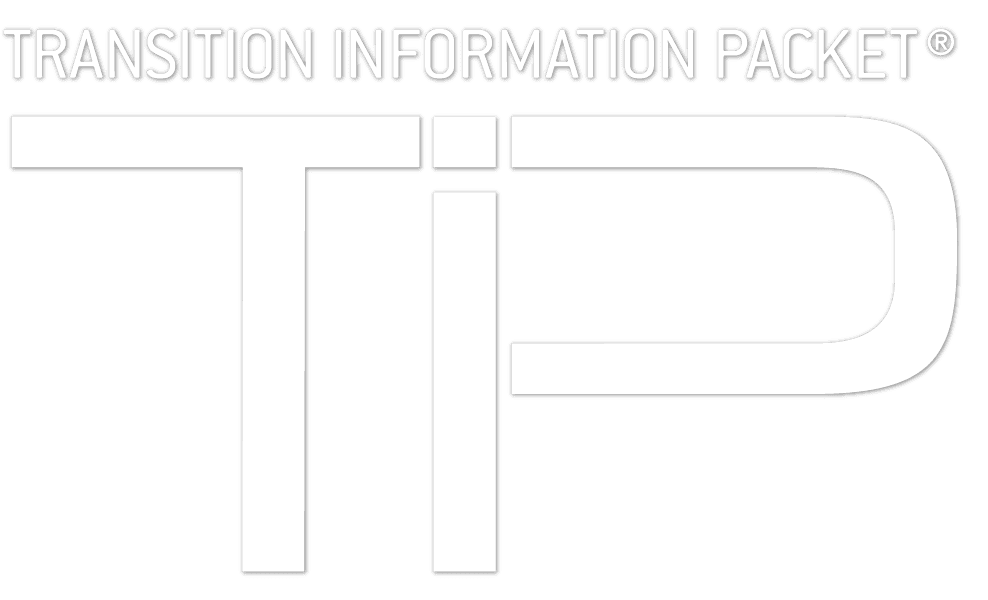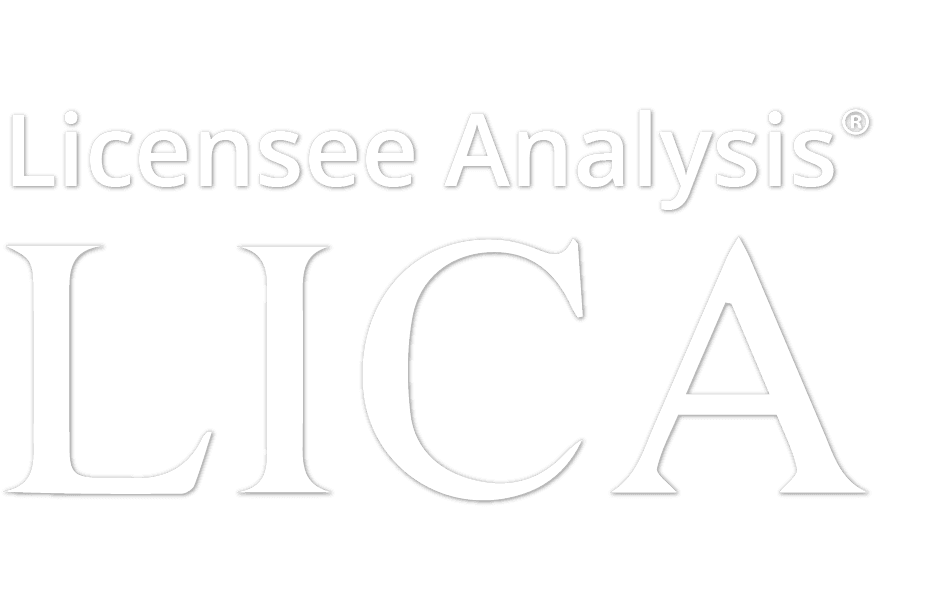Venture Michigan Fund (VMF)
All questions or requests for additional information should be directed to GCM Grosvenor Private Markets
Purpose of Initiative
The Venture Michigan Fund (VMF) was formed under the Michigan Early State Venture Investment Act of 2003 and is a venture capital fund investment program. VMF promotes Michigan’s economy through assisting in the creation of new jobs, businesses, and industries through investing in Michigan-based early stage companies. VMF consists of two funds of funds, VMF I, Limited Partnership, a $95 million fund launched in 2006 and VMF II, Limited Partnership, a $120 million fund established in December 2010.
The Program seeks to:
- Achieve a superior internal rate of return on venture capital investments while contributing to the economic development of the State of Michigan
- Enhance and diversify the economic base of Michigan by fostering the creation and growth of new jobs, new businesses and new industries within the State, and through investment in certain businesses that focus on areas including, but not limited to, alternative energy technology, high-technology and healthcare
- Promote the retention of business and jobs through investments in Michigan-based businesses
- Encourage the development and growth of a vibrant Michigan-based venture capital community
- Help facilitate the transfer of technologies from the State’s various universities and research institutions to the private sector
- Help facilitate public and private partnerships within the State
Award Details
The Venture Michigan Fund I (VMF I) and Venture Michigan Fund II (VMF II) have invested $187.3 million to 46 unique portfolio companies. These 46 companies have seen jobs grow from 692 at entry to 1,453, an increase of 109.8%.
Michigan Emerging Technologies Fund
Phone: (734) 462-4629
Email address: mietf@gvsu.edu
Purpose of Initiative
The Michigan Emerging Technologies Fund (ETF) expands funding opportunities for Michigan technology companies seeking federal R&D funds via the federal SBIR/STTR programs. The MI-SBDC administers the ETF through a contractual agreement with the Michigan Economic Development Corp. authorized by the Michigan Strategic Fund. Funding for the program is provided through the Michigan 21st Century Jobs Fund. The purpose of the METF is to:
- Encourage companies to pursue SBIR/STTR grants and contracts
- Increase Michigan’s competitiveness in obtaining SBIR/STTR funds
- Increase commercial success of Michigan SBIR/STTR projects
- Stimulate early stage technology investing activity in Michigan
Eligibility
Eligibility requirements include the following:
- The Company must meet all federal SBIR/STTR requirements;
- The Company must be a Michigan company or have its principal place of business in Michigan prior to the disbursement of funds;
- The Company must submit SBIR/STTR proposals in at least one of the Four Competitive Sectors;
- The Company must complete an ETF application prior to submitting an SBIR/STTR proposal.
In addition, ETF funds must be used to help bring Michigan SBIR/STTR projects to commercialization in at least one of the four technology sectors supported by ETF. These sectors are: advanced automotive, manufacturing, materials, information and agricultural processing; alternative energy; homeland security and defense; and life sciences.
Application Process
Companies interested in submitting an application to the ETF, must submit an electronic application through the Michigan Emerging Technologies Fund web site at www.mietf.org prior to submitting an SBIR/STTR proposal. Applicants must request an ETF Commitment Letter no later than 10 business days before the federal submission deadline. Applications are then reviewed to determine eligibility.
Companies that receive an SBIR/STTR award must submit the following documents to the MI-SBDC:
- Proof in the form of an executed SBIR/STTR contract/grant between the federal agency and the Company;
- Proof of receipt and deposit of eligible Third-Party Funding; and
- A one-page Use of Funds template, which can be found here.
Award Details
The ETF will match SBIR/STTR awards in the amounts of $25,000 for Phase I and up to $125,000 for Phase II proposals. Third Party Funding is required for both Phase I and Phase II matching grants.
Accelerate Michigan Innovation Competition
Purpose of Initiative
One of the largest business competitions in North America, the Accelerate Michigan Innovation Competition “highlights the state as a powerhouse for business opportunity and next generation technology. The competition features the best and brightest seed-stage businesses to regional investors while awarding nearly $1,000,000 in prizes. Accelerate Michigan is managed by Invest Detroit Ventures with support from the Michigan Economic Development Corporation, Ann Arbor SPARK, the Michigan Small Business Development Corporation and JR Turnbull.
Eligibility
The Accelerate Michigan Innovation Competition is open to any early stage business with operations in Michigan.
Guidelines for eligibility include:
- Innovative & proven (past proof of concept)
- At a commercial stage
- Must be a scalable business (service businesses are not eligible)
- Potential to achieve $10M+ in annual revenue by 2020
- Have raised no more than $2M in private investment (including angel & venture rounds / excluding private or public grants)
- Have current annual revenue of no more than $5M
- Targeted at innovation-based, technology-led companies
- Winners must be located in the state of Michigan to receive any award
- Companies that have previously won a total value of $25,000 in AMIC awards are not eligible
- Must qualify in one of the following sectors:
- Advanced Materials / Manufacturing
- Alternative Energy
- Business Services
- Consumer Products
- Information Technology
- Life Sciences / Healthcare
- Media
- Mobility
Application Process
The first round of the program (involving the submission of a slide deck of no more than 10 slides and a two page executive summary) is the preliminary application phase. The second round semi-finals will require a PowerPoint for on-site judging and a 10 minute presentation. The third round finals will require a five minute elevator pitch with a maximum of six slides.
Award Details
The grand prize winner will receive $500,000; the first runner up will receive $100,000; and the second runner up award winner will receive $50,000. A People’s Choice award valued at $10,000 is also given.
ADVANCE Grant Proof-of-Concept Fund
Ms. Ann Spalding
(517) 884-1605
msugrant@msu.edu
Purpose of Initiative
This is a university early stage proof-of-concept fund designed to closely align with other programs as well as angel and venture capital within the State to provide a pipeline of de-risked technologies and fundable startup opportunities for further advancement. The program will provide a strong incentive for faculty with early stage technologies at the Michigan public universities to engage with their university’s technology transfer office (TTO) and commercialization efforts. Those that receive funding through the program will benefit through achievement of critical early stage milestones such as proof-of-concept or market opportunity validation which will lead to follow-on commercialization activities.
Eligibility
Applicants must be from institutions of higher education in the State of Michigan. The relevant technology must have an invention disclosure filed and have an identified commercial application. Projects involving optioned or licensed technologies are ineligible for funding.
Application Process
The program is run as a semi-rolling funding program, whereby proposals may be submitted at any time by the office responsible for technology commercialization at universities throughout Michigan. The ADVANCE Grant Program Proposal and ADVANCE Grant Budget and Signature Form may be downloaded, completed and returned here. Submitted proposals will be reviewed bi-monthly by the Project Evaluation Committee.
Award Details
Project funding requests may be submitted up to $80,000 of which $40,000 is supplied by the Program and $40,000 matched by the university.
Michigan Translational Research Acceleration and Commercialization Fund (MTRAC) Program
Michigan State University Agro-biotech
Mr. Kevin McCurren
MSU MTRAC Program Director
(517) 884-1824
mccurren@msu.edu
University of Michigan Life Sciences
Mr. Brad Martin
MTRAC for Life Sciences Innovation Hub Program Director
(734) 936-8577
bradmart@umich.edu
Michigan Technological University Advanced Applied Materials
Ms. Brenda Da Costa
MTRAC Commercialization Program Director
bdacosta@mtu.edu
University of Michigan Advanced Transportation
Mr. Eric Petersen
Program Director
ericp@umich.edu
Purpose of Initiative
MTRAC was approved and created in 2012 by the Michigan Strategic Fund with program oversight provided by the Michigan Economic Development Corporation (MEDC). MTRAC provides grant funding to eligible applicants. The main objective is to accelerate the transfer of technologies from Michigan’s institutions of higher education to the private sector for commercialization of competitive edge technologies. As a statewide program, MTRAC has expanded with designated innovation hubs across the state, broadening the application for translational research to all institutions of higher education, nonprofit research centers and hospital systems. The MTRAC statewide program supports four Innovation Hubs at three universities:
- Michigan State University Agro-biotech
- University of Michigan Life Sciences
- Michigan Technological University Advanced Applied Materials
- University of Michigan Advanced Transportation
Eligibility
- Michigan State University Agro-biotech
The program is open to all technologies that are AgBio related. Eligible MTRAC AgBio projects span a broad range and generally fit under the USDA definition of food, fuel and fiber or anything related to these areas, either as inputs or outputs. Our AgBio definition includes bio-derived/bio-based materials and companion animal veterinary medicine. Applicants must be from institutions of higher education, non-profit research centers and hospital systems in Michigan. The relevant technology must have an invention disclosure filed and have an identified commercial application. The technology should be at least at the proof-of-concept stage.
- University of Michigan Life Sciences
The MTRAC for Life Sciences Innovation Hub provides resources to support translational projects in the life sciences with high commercial potential. Funding focuses on four specific market segments, or “verticals”: devices, diagnostics, therapeutics and healthcare IT. Mi-Kickstart early-stage awards fund preliminary studies, development activities, and milestone setting. Mi-TRAC mid-stage awards include funding for proof-of-concept and late-stage translational studies, regulatory guidance, business plan development and mentorship from industry and investment experts. Innovators from all U-M schools, as well as other institutions of higher education, non-profit research centers and hospital systems across Michigan are eligible to submit projects for funding consideration to the MTRAC for Life Sciences Innovation Hub.
- Michigan Technological University Advanced Applied Materials
All proposals must relate to an advanced material technology previously disclosed to the office responsible for technology transfer at a Michigan state research university, hospital, or non-profit research center with a designated technology transfer office such as Michigan Tech’s office of Innovation & Industry Engagement. A commercial application must be identified for the technology. The PI must be willing to become involved in initial and follow-on business development activities such as customer discovery, competitive analysis, follow-on funding development, proprietary protection strategies and assessment of the intellectual property landscape surrounding the technology. Such activities are critical to the success of the program so awards will be limited to applicants willing to commit to participation in such programs. Licensed technology is not eligible for MTRAC funding though optioned technology is eligible.
- University of Michigan Advanced Transportation
This program funds translational research applications in advanced transportation materials, robotics and autonomy, sensors, electric vehicle drivetrain and propulsion, software, controls, data, and advanced manufacturing processes. The technology must be the subject of an invention disclosure from a Michigan-based university and be under active management of your technology transfer office. The technology must be available for licensing in the relative application or field of the proposal. The applicant principal investigator must be from a university located in Michigan.
Application Process
- Michigan State University Agro-biotech
Proposals are received annually in the winter for Tier I MTRAC AgBio Full awards. For Tier II Starter awards proposals are reviewed biannually. For additional information on the application process, click here.
- University of Michigan Life Sciences
Mi-Kickstart awards are given quarterly, with proposals for these early-stage awards due February 1, May 1, August 1, and November 1 of each year. Mi-TRAC awards are given once a year, with proposals for these mid-stage awards due September 2017.
For Mi-Kickstart Awards, all interested researchers must complete a pre-submission application before submitting a full proposal. Proposals must address a discrete milestone that is critical to the advancement of research to the point of product development. This milestone will increase the commercialization potential of the overall research project to the point where it can be considered a strong candidate for further translational research funding and ultimately commercialization. Examples include in-vivo testing, prototype development, beta development and testing, or drug-candidate pre-clinical work.
Mi-TRAC Awards are given once a year with call for proposals deadline in September. To submit a proposal, click here.
- Michigan Technological University Advanced Applied Materials
The proposal process is a three-stage evaluation. The Oversight Committee will first review a short letter of intent after the submission deadline. Based on the LOI, the Committee will invite five-page proposals that explain the technology and proposed path to commercialization. Based on a review of the full proposals the Committee will invite PIs to make a personal presentation in the final stage of the process. After the personal presentation final project selections will be made.
- University of Michigan Advanced Transportation
The call for proposals begins annually in early January and are typically due in February. Applications are then reviewed by the Oversight Committee with oral presentations scheduled for early June. Awards are announced within a few days and projects commencing in the July/August timeframe. Each proposal will be evaluated on the combination of IP, market and commercialization potential, scientific merit, potential impact on the transportation industry, and the willingness of the PI to engage in commercialization activities. After review and scoring by the Oversight Committee, researchers will then be invited to an oral presentation. Presentations will then be scored, and awards made to the project with the highest commercial potential. All presenters will be given feedback for use in future applications.
Award Details
- Michigan State University Agro-biotech
Tier I MTRAC AgBio Full awards have a $100K budget max. Tier II MTRAC AgBio Starter awards have a $25K budget max.
- University of Michigan Life Sciences
The MTRAC for Life Sciences Innovation Hub offers two funding tiers – “Mi-Kickstart” awards offer early-stage funding in the $25K-$30K range, and “Mi-TRAC” awards offer mid-stage funding in the $100K-$200K range.
- Michigan Technological University Advanced Applied Materials
A typical project might include total funding in the range of $60,000 – $100,000 which would include 1:1 matching funding comprising 50% of the total project budget. Indirect costs of up to 15% of the MTRAC award portion may be requested. Indirect costs cannot be counted as matching funds. Faculty release time, relevant federal support dollars or outside investment qualify as matching funds. University internal funding would also qualify as matching funds. Budgets should address milestones that de-risk a technology in preparation for follow-on investment. Researchers are strongly encouraged to discuss budget development with the Commercialization Program Director prior to submission.
- University of Michigan Advanced Transportation
Award amounts were not given although $2.5 million has been awarded to 24 projects since 2014.
Commercialization Milestone Grant (CMG)
Ms. Brenda Da Costa
MTRAC Commercialization Program Director
bdacosta@mtu.edu
Purpose of Initiative
Commercialization Milestone grants (CMG) are designed to provide faculty and student inventors a means to achieve a specific step or steps toward de-risking, or other tangible demonstrations of commercial viability of an early stage technology. Funded projects will typically focus on specific milestones within a step-wise progression designed to demonstrate how the early stage technology provides a viable solution to a validated market opportunity. Milestone success must be part of the plan to attract additional funding capable of bringing a product from its current stage into the private market. CMG serve as stepping stones toward complementary or follow-on commercialization funding such as the Michigan Tech M-TRAC program, STTR/SBIR awards, I-Corps, Superior Innovations, Technology Transfer Talent Network or other appropriate programs.
Eligibility
To be eligible for a CMG the technology to be commercialized must be the subject of an invention disclosure submitted to the Office of Innovation & Industry Engagement by Michigan Tech faculty, staff, or students. The technology should present opportunities for proprietary protection that provide for a sustainable competitive advantage against competing alternatives. Technology which has been licensed to commercial partners of Michigan Tech is not eligible for the program. While graduate students and post-docs can be engaged through project funds to complete specific technical tasks the program will not provide tuition support and is not intended to provide extended post-doc support. Nor does the program provide faculty summer support. Projects that are not making good faith efforts to meet milestones are subject to loss of funding.
Application Process
Prior to formal submission, pre-proposals must be screened and approved for submission by the M-TRAC Program Director. Once written approval of the M-TRAC Program Director has been secured, please submit one copy of the Required Elements Checklist, Transmittal Form, and Proposal as one pdf file directly to the director.
Award Details
Proposals may request up to $20,000 but more modest proposals are likely to be more competitive. Unexpended funds at the end of the project period will revert to the CMG pool.
Updated April 2018 by Rachel Werth



